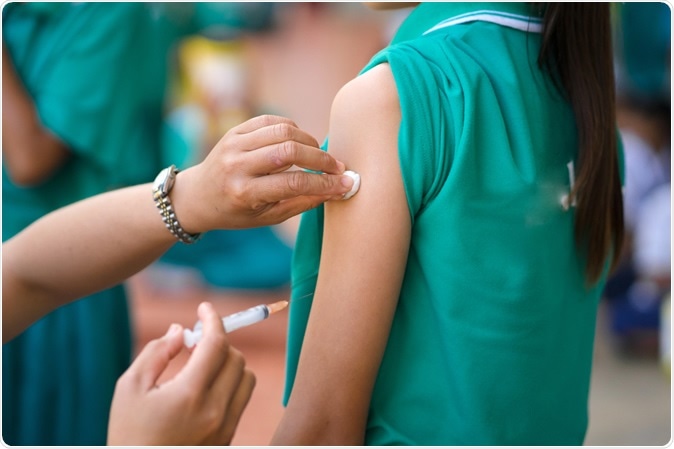Cervical cancer is preventable, thanks to the development of the human papillomavirus (HPV) vaccine. Various strains of HPV, a sexually transmitted infection, play a significant role in the event of cervical cancer. Now, the U.S. can eradicate cervical cancer within the next 20 years, according to a new study.
A team of researchers at Harvard T.H. Chan School of Public Health has revealed that cervical cancer could be eradicated in the country, that is if 90 percent of eligible women were screened.
Published in the journal The Lancet Public Health, the study highlights a new modeling study, showing that screening women are the most effective way to hasten the eradication of the disease, compared to current levels of screening and HPV vaccination.
The researchers also pointed out that though HPV vaccination is one driver in the reduction of cervical cases in the long run, for instant results, screening is still one of the best ways to reduce the burden of cervical cancer in the country.

Image Credit: CNK02 / Shutterstock
Cervical cancer by the numbers
Cervical cancer is one of the most preventable and treatable types of cancer, wherein 99 percent of the cases are linked to the human papillomavirus (HPV), which is a sexually transmitted infection, the World Health Organization (WHO) reports.
With vaccinations against HPV present and early detection through screening, the cancer is preventable and treatable. In the United States, cervical cancer used to be the leading cause of death for women, but in the past four decades, the cases have significantly decreased, thanks to an early screening. This year, the American Cancer Society estimates that about 13,800 new cases of cervical cancer will be diagnosed in the country, and an estimated 4,290 will die.
Screening can detect precancerous changes in the cervix, which, if not treated, can lead to cancer. The CDC encourages boys and girls to get vaccinated against HPV between the ages of 11 and 12. Women are also encouraged to have a screening test called a PAP smear every three years when they reach the ages of 21 to 29 years old.
It will take two decades
The study is the first one to estimate a timeframe for eliminating cervical cancer in the U.S. To land to their findings, the team used two disease modeling platforms to compare nine various HPV vaccination and cervical cancer screening treatments. The model, which was adapted for Japan, helped the team evaluate the expected number of cervical cancer cases and deaths over the lifetime of participants who were born between 1994 and 2007. From there, they evaluated the possibility for each scenario to achieve a threshold for the elimination of four cases per 100,000 women and then one case per 100,000 women.
The team found that cervical cancer elimination can be achieved by 2038 to 2046, increasing screening coverage to 90 percent in 2020 was the best way to speed up the elimination of the disease. This means that 1,400 to 2,088 cases will not occur each year between 2019 and 2100. At present, about 14 percent of women are never screened.
On the contrary, reaching 90 percent HPV vaccine coverage in adults between 26 and 45 years old was found to have little effect on the cases of cervical cancer.
“Across all three analyses, we were able to project the vast number of cervical cancer cases and deaths averted globally by ensuring high uptake of both prevention and treatment services for cervical cancer," Megan Smith, program manager at the Cancer Council New South Wales in Australia and co-author said.
"Together with the WHO elimination initiative, we hope this analysis will galvanize public health efforts to improve access to both primary and secondary cervical cancer prevention in the U.S.," Jane Kim, professor of health decision science at Harvard Chan School and senior author, added.
Sources:
World Health Organization (WHO). (2020). Cervical Cancer. https://www.who.int/cancer/prevention/diagnosis-screening/cervical-cancer/en/
U.S. Centers for Disease Control and Prevention (CDC). (2020). Basic Information About Cervical Cancer. https://www.cdc.gov/cancer/cervical/basic_info/
Journal reference:
Simms, K., Hanley, S., Smith, M., Keane, A., Canfell, K, et al. (2020). Impact of HPV vaccine hesitancy on cervical cancer in Japan: a modelling study. The Lancet Public Health. https://www.thelancet.com/journals/lanpub/article/PIIS2468-2667(20)30010-4/fulltext